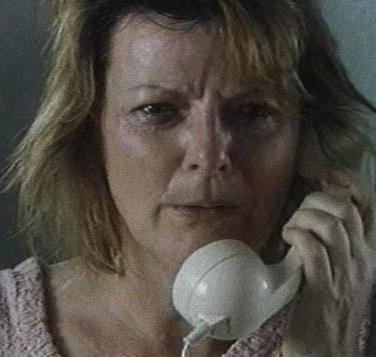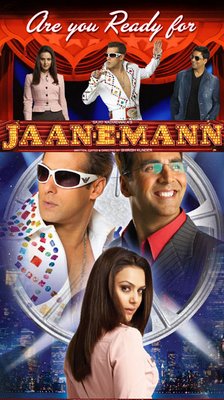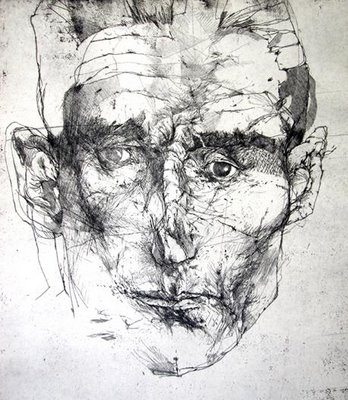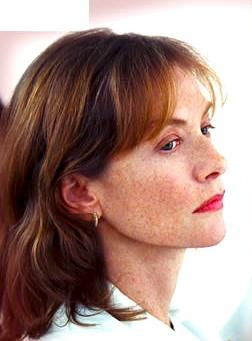As of now, I feel two things, either what I am writing will be worth posting or it will be trashed. The other questions are secondary, at least as of now. I am also thinking one more thing constantly, as I write this, whether I should think it to be readable material to others or not (my apologies, if I sound pompous, let me pour today) and an associated thought that runs through my mind and it seems now, it is not a new thought, I have thought of it over and over in different forms and at different times, the thought of whether to think about my potential readers (again pardon me) or to completely forsake them, and absolutely abandon the thought that these words will ever be read by anyone except me. In order to free myself from these thoughts and proceed, I make a quick compromise, as always, and a quicker mental note of that compromise of posting it, if it sounds good. I keep the compromise as vague as possible, intentionally. As you might have found out in all this blabbering, the main point of self-doubt. Should I, whether I should, Will I etc etc. All futuristic fears. But a hidden fact is more profound, it's some sort of self vindication and may be self appreciation. See, I know this, and well too and I can write also. That ugly feeling, the celebration of mediocrity.
This post is supposed to be a mixed post. It will be a mixture of personal and fantasy. Nothing that I write here, will be purely true or purely false, because I believe neither of the two exists and therefore neither of them can be written. It will be mixed because I would like to talk about topics which are not worth a post but can not be left out too. They are marginal and necessary both. So it's not a post about a certain thing and it is also not a post about nothing. One way to see this post is group of discarded posts or discarded paragraphs from posted posts, in last two years. I may seem pompous and pretentious, but let it be.
When I first read Camus' The Stranger, I was almost shocked by the stylistic and narrative simplicity of the first part because just before it, I have read an essay by Camus (Its called Absurd Man), which was exceptionally difficult to understand and I left that one page essay in between. But as I read the first part of The Stranger, I thought what Camus was conveying by such a deceptively simple language, with no philosophy, just simple unadorned dead observations. There emerged some clarity of vision, after reading the second part of the book, which is not tough to follow but tougher to understand than the part one. The first and the foremost thing that come to the mind is the difference between the life lived and the life observed. Meursault, who was obviously happy in the first part and he has no reasons for anything, but in the second part, although he was not doing wrong things which he did in the part one, he was unhappy, may be because he was forced to analyzed the life lived. I don't know much about existentialist philosophy and stuff, but I felt that Camus is pointing to a fact of life. Its an example of literature being philosophical without explicitly being so, its such a hopeful proposition, its hopeful because it works for casual readers like me and it draws one to read more too. On a second level, there is always a danger of a novelist becoming a philosopher. A single page of 'Absurd man' might be having lots of truth and xxx philosophy but Camus must write a 100 page 'The Stranger' to tell what it is and in all this he must maintain his style and structure, not compromising on the tenets of art. Fiction is what liberates, it's accessible and it's universal. No doctrine of stone headed philosophy will ever humanize the inhumans. It's the fiction, mix of real and imaginary that will set us free. Gogol could have written the character of scoundrel Chichikov without the fabrication of a thousand absurd characters, but Gogol knew that the background picture must be complete and hence he fills in all the blocks before he adds his anti-hero to complete his portrait. Camus might have discussed in whole philosophy in essays but a stranger and a fall are indispensable.
One more thing at the point and it's about my double standard between two mediums of art - Literature and Films. I think a work of literature should stand by itself; it should create a world of its own. It should stand alone, unparallel, holding unto itself, should create its own language. I don't want a slice of life or an episode in a novel but the whole pie. Even though, a novel tells a story about one day in the life of a person, it should hold a world view. As you see, I have stellar expectations from novels. It does not mean that they should run into pages. I am still to read anything which is more than 200 pages (Dead souls is the only exception, it almost killed me, I completed it in several night outs, smoking like a pipe. Although I strongly believe one should not smoke while reading, you measure pages by butts). That's why Kafka works for me, he did not write much, but even his short stories create a world of their own. I also don't like exotic touches in a novel, mentions of cultures and recipes and the foreign words. And that's why I hate Indian novels, which start with a big extended family, most of the effort for a foreigner will go into mapping the family tree, the criss-cross plot amongst them, this is not what I meant by creating a world of its own. Given all these stupid prejudices, my pathetic reading speed, and television menace, I don't read much and enjoy my ignorance. When it comes to films, I am ok with a slice and don't look out for worlds of its own. I think, it's not because of any bias from my side but may be because of my limitations as a reader. I also believe it's partly because of the advantages and limitations of these mediums, but I can't clearly enumerate them.
I am really interested in stupid statements. Consider this statement. Since an author observes every detail of the characters, their attires, their features, body shapes, hair, and the way they move and talk, why a critic not allowed to do so about the author while reviewing 'his' work. Although absurd and laughable, this is an idea and if put in better and overblown (try using some 'ism's) words, it might seem perfectly ok. See this logic. This movie is not good because the white subtitles are put across white background, not able to get what the movie want to say, this movie is not recommended. There are loads of such arguments, if put in better cryptic language will sound very plausible. We can say the following about the subtitled movie. Although a good film, it's hard to follow owing to its technical difficulties. Bravo. Any stupidity can be justifiable by the 'effective' use of language and that's why if a writer seems artfully logical, think twice.
One more mental fight that I constantly indulge in about style and content, although I haven't read much to think about it in any concrete terms but I enjoy this mental debate and it's a big time pass. It's always fun to read about Flaubert's obsession with style. It always fun to read about his eccentricities on how he would try to attain perfection with a limited number of syllable and how he will play with patterns and sounds till they become perfect and how much a single punctuation will mean to him. This obsession made his contemporaries call him a stone figure, trying to sacrifice all for style. After this thought comes an associated depressing thought, an almost defeating thought. I think of the futility of such an effort if the people do not care for it. How many of the good readers will care about this precise music in dead words. I know that this idea is and was revolutionary and it did help in the growth of literature at the turn of the century but thinking a lot about poor Flaubert gives you a static depression. May be a creator does not write for others, or as Nabokov will put it, an author never caters to masses but even there should be individuals who should be great readers, good alone will not do.
My speed of reading is pathetically slow, and if I were reading something that is interesting to me, I will make it even slower. I have come to believe by now that the speed of your reading is directly proportional to the speed of your mind and I think slow, slower when I am interested. I have tried to justify this design flaw by saying that one should give proper time to a creation. When it comes to books, you can steer the speed but even in films I try that, I will see the first 40 mins and then turn off the player and sleep and give it its time ( or give me some time) and then start it the next day. I will not listen to commentary track for 2 days before I have made something out of it. In effect I will try to diffuse and spread a film for a week attention. It seldom works fine. At times you lose track of what you are thinking and a week is a long time for other things to happen, and other things are always more important. Last year while making a plan on how to see a film, I took some basic precautions like switch off the mobile, switch off the light, watch alone, take something to eat before hand and , concentrate on the film, which worked but later I realized that what I am doing is just making the atmosphere of a theatre.
I read on somebody's blog a quote by Cicero that says "I criticize by creation, not by finding fault". I myself always criticize by nitpicking and I understand the futility of such criticism. The only purpose served by such criticism that finds fault, is to fill in pages and to feel good about that. Why I didn't like 'Life is beautiful', it should not be criticized because several scenes rang untrue and unnecessarily funny and manipulative but because it is ghastly disrespectful. Hot favorite 'Shawshank Redemption' is bad because it promotes hero worship and optimism of worst sort, and the film is against freedom and equality. People don't criticize by creation because of several reasons. First and foremost, because it's very difficult to turn your back from what you have said if you hit the basics, no patchwork can fully undo that. Secondly, it is simply too difficult to criticize by creation, quibbling is easy and we can comfortably defend it. If you go by what I just said, Shawshank Redemption promotes hero worship. I also meant that I don't like hero worship which is big statement and can't easily be refuted, once said. One of my Tamil friends always laments that Tamilians are a clan of hero worshippers. But next time when he will appreciate Rajnikant by his mass appeal, he is surely in big trouble. Criticism by creation has big traps ahead, so people fear from it. I like the first half of Rang de Basanti because of the fun and lightness but I don't like the second half because of the conclusion it delivers, this types of criticism are trash and will never bring any desired change. But, I know, we will continue to do so, because it a lazy and trouble-free way to fill pages.
I have a huge soft corner for films of Bergman. I can say that I didn't like Saraband that much but if someone says that he hated it; I will immediately come to defense. Even his obviously flawed films like 'Autumn Sonata' are very dear to me. It's because I feel that I stepped into serious cinema only after watching Wild Strawberries. It had all what I wanted from Cinema. It has great evocative photography, real melancholy, nostalgia of regret, philosophy, truth, honesty and humanity. When I saw this film, I thought what they wrote in reviews was all true. It was an uplifting feeling of Eureka! I still owe my little understanding of cinema and the knowledge of huge potential of films as a medium to Bergman. I once read on imdb where a newbie after seeing her first Bergman film wrote something like, "Now I know what they are all trying to achieve, when they make a serious movie". This statement is not as pompous as to say that I have an orgasm after watching the film but its really true observation.
Sometimes, it looks like that one decision might have changed the whole film. I always wonder what Chinatown would have looked like, if Polanski would have succumbed to the pressure for a happy ending. In certain films, happy or sad ending does not matter much, and in some films, like most of Fellini films, director manages both. When I think of certain films, especially Chinatown, it becomes almost necessary to have a sad ending with big void of nothingness and how brilliantly that film manages it. With the hero, audience feels without any power, as if they lost a fortune. This is the power of cinema.
Code Unknown makes an ultimate statement about the relationship of actor and director. This is the scene where Georges surreptitiously photographs passengers on the Metro. It's a dream of a Bressonian director to shoot his actors like this. But Haneke must have seen a deceit in that and probably that's why that episode was put in the movie. To me it looked like an attack on the unsuspecting public, there was something sacrilegious about it, a sort of profane voyeurism. Now interpolating back from public to actors, it still remains a bit profane, directors know that, I think. It's justified for sake of art, but still it is so.
It happens with everybody. When you start seeing movies, you begin with reading reviews. Especially in India, where most of the films are not available or we have no knowledge of them. You gradually know that there is better cinema somewhere, you learn name that you can not pronounce. About 3-4 years back, there was a constant joke that I have to bear (with pleasure), it was about the ratio of films I have seen and the reviews I have read, it tends to zero. After my great efforts, it still tends to zero, may be a better zero, one shade lighter, two shades brighter. And I have been blamed to frame my opinions on reviews (that is partly true too). I must confess I love reading reviews and I owe them a lot. I have not watched a single film if they were not there to guide me to watch and later what to get out of it. I read reviews of Color Trilogy for 2 years and then I watched it, it was all speculation. I read the plot of Talk to her and thought of how it will be. Love and coma. It was such nice period of imagination and supposition, and a pure hope that I will see them soon. When I remember myself reading about Aguirre, I still get a sensation of madness, Aguirre in Amazon, deadly waters, lovely daughter and all. When reviews are written by someone who loves them, the magic is recreated. Reading about Mulholland Drive where reviewer admits that he loved it but did not get it, is the truest confession for the love of cinema.
When you are writing about a Bresson film, you usually run out of adjectives and in dour posts and views (like the ones on this blog), you perm up the mundane matter by magniloquent adjectives. At best you can come up with 'simple', 'pure', 'earthy' and 'spiritual' and a little more thinking can let you reach to 'transcendental' or move towards 'grace', anyway you will look stupid if you use 'Bressonian' to define his films. Someone said "There is nothing to writing; all you do is sit down at a typewriter and open a vein." But the problem remains, which vein to open, how to open it, how many to open. In case of Bresson, the problem has an extra dimension, why to open the vein when it is so beautifully and economically opened by images and sounds. Any writing on Bresson's film will not be able to say more about the film than you have seen, and rightly so. They will flirt more about Bressonian themes, Bressonian methods and in some cases, his other films. And I have heard about Bresson and Bressonian in more film reviews than any other director or approach. That's his influence and that is what Bresson all about.
In being John Malkovich, of the entire film, I love the chimp scene, the scene where a chimp frees Lotte and where he remembers his past. In normal terms, we can just have a big laugh at that sequence but at a more aesthetic level it's perfectly beautiful and extremely innovative. In accordance to the theme of the film, we are thrown into the chimps mind and his fears, emotions and desires. It's seemingly weird but absolutely truthful, at the same time. Another such scene which is apparently laughable but eventually insightful comes from Winter Light, the scene where the Sexton says that he suffered more than Jesus, it's at once laughable, but eventually it turns out to be sad. Weekend, Naked Lunch and That Obscure Object of Desire are filled with such apparently laughable episodes. Of all other things, these sequences test our patience for a reaction, our tolerance for art and above all they rebuke our hurry to get into quick judgments.
Some time back I read an interview of Lars von Trier where he talked about Slave Owners. The concept goes like this. To control slaves, we need slaves who can work as slave owners. The good ones usually do that. And it is because of those slave owners, slavery lives endlessly. Without slave owners, everyone will be fighting for themselves but as soon as some well intentioned good slaves come to picture, they become the instrument of manipulation by the owner. This may look like a thought of dangers of goodness but it is actually a thought of being together in front of such type of oppression and do not act emotionally. Our goodness should not come in the way to be used by the oppressor. It is, no doubt, a radical thought but it comes second in the ideas that totally shook me. The first one is by Fassbinder, "Love is the best, most insidious, most effective instrument of social repression" and now when I think, these two statements look closely related. Also, if any of these statements look to be against goodness or love, then you are mistaken; they are against their power which can be used for manipulation.
I know that this post is going nowhere near conclusion but its time to wind up. This post is written over long time, and mainly when I had a fever last week. During that time I had lots of time by myself and started to jot down this post. It's a cleansing post to get a lot of things out my mind. I think I feel lighter after writing it. Thanks for reading.









